Can Cats Eat Shrimp? What Are The Risks?
13.04.2022.
Consider first whether or not feeding your cat table scraps could harm their health. While it's admirable that you'd like your cat to partake in a dish that you like, keep in mind that caring can take precedence over sharing.
Many owners don't realize that certain human foods are toxic to cats. Despite their fearsome appearance, our furry companions are actually quite gentle on the inside. But can cats eat shrimp? Is that a safe option for them, or are shrimp toxic to cats?
We've decided to share our shrimp knowledge with everyone who loves cats because we're such cat lovers.
RELATED: Can Cats Drink Milk? Here's What Your Vet Might Advise You
Shrimp benefits for cats
As you can imagine, seafood can offer us and our cats plenty of benefits. Here are some of the best things our cats can get if we give them some shrimp.
Calories
Take a look at the nutritional information on shrimp. When it comes to 3-ounce servings, there are only 84 calories. To top it all off, there are never any processed carbohydrates included.
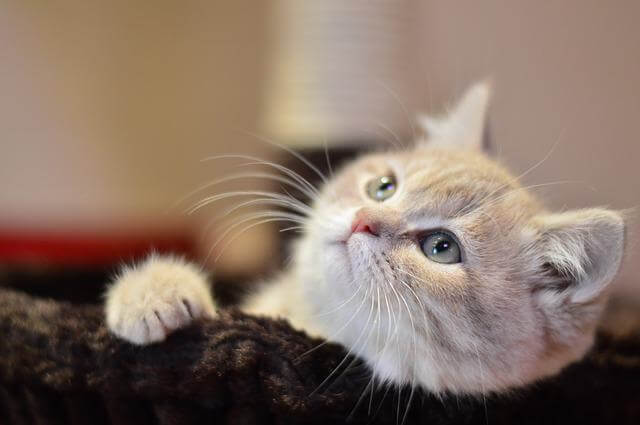
Protein accounts for the majority of calories taken in a serving, while fat accounts for a minor percentage of those calories. Your cat's immune system will also benefit from various minerals and vitamins found in shrimp.
Cholesterol
We're stumped as to why cholesterol has such a terrible reputation. No matter how many times we hear about the dangers of elevated cholesterol levels, we often overlook the fact that anything ingested in large quantities becomes harmful. Even protein.
It is, nevertheless, good for your body if consumed in moderation. As a result, you should give your cat shrimp every now and then.
RELATED: Can Cats Eat Raw Chicken? What Are The Risks?
Even while the cholesterol content of shrimp is not 85 percent higher than that of other seafood, that still doesn't mean it's bad. For example, cats that require an increase in the production of bile acid and vitamin D have been shown to require high levels of cholesterol.
Antioxidants
Ever heard of astaxanthin before? Shrimp contains this tetraterpenoid, which just happens to be a pretty powerful antioxidant. You see, shrimp is a big fan of algae. In fact, it is one of their primary food sources. Astaxanthin, the pigment that gives shrimp their red color, can be found in algae.
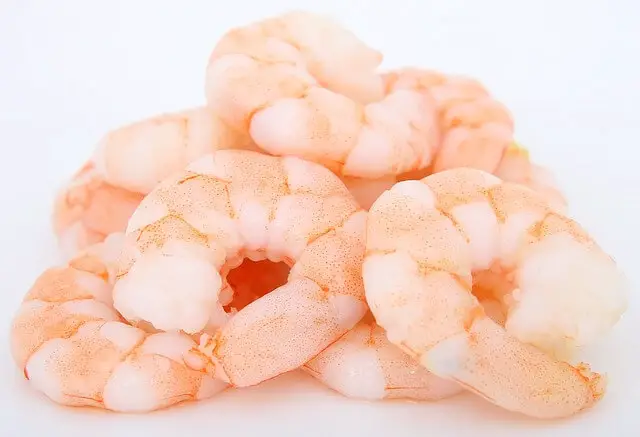
In the cat's body, astaxanthin functions as a raw material for the development and growth of several systems. It hardens the arteries and protects the body's cells from the damage free radicals can cause.
Healthy nutrients
As a food, shrimp is more than just delicious. Essential minerals like calcium, selenium, and vitamin B12 are also found in shrimp. The cat's musculoskeletal system will undoubtedly benefit from all of them.
RELATED: Can Cats Eat Grapes? Here's Why It's Not a Good Idea
Shrimp drawbacks for cats
Shrimp might be delicious and this tasty treat brings our cats many benefits. Unfortunately, there are some drawbacks when it comes to feeding shrimp to our cats.
Iodine
Shrimp has significant levels of iodine, but that fact is rarely discussed. The iodine amounts shrimp contains might not be dangerous for us, but cats, as we mentioned earlier, are pretty sensitive. You shouldn't compare yourself to a cat because you might ingest 1000mcg of iodine and not feel the effects, but your cat might get poisoned.
Are you prepared to put your cat's health at risk because there are no conclusive studies on the effects of iodine on cats?
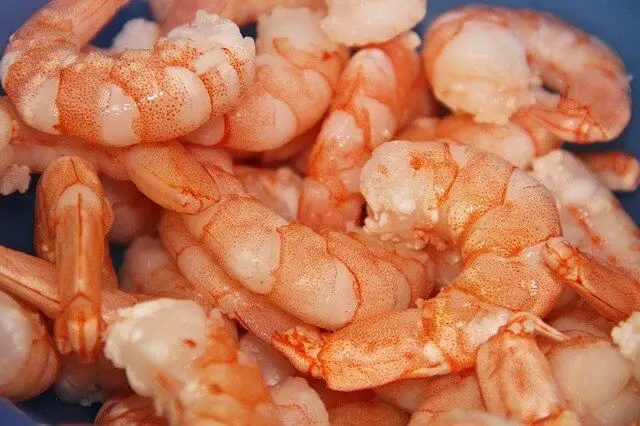
Bacteria
Raw shrimp is more appealing to cats than cooked shrimp. That's logical, given that they're meat-crazy. Vibrio is a bacteria commonly found in fresh meat, which can be a serious issue. That bacteria can cause cholera and gastritis in humans.
RELATED: Can Cats Eat Bananas? What Would Your Vet Say?
That's just the beginning. A study conducted a few years ago discovered that there are at least 100 distinct Vibrio strains. Moreover, a large percentage of those strains have evolved resistance to antibiotics throughout time.
If your cat has been infected with Vibrio, you should know there is no cure. Either your cat survives, or the vomiting and diarrhea prove too difficult for them to handle.
Mercury
According to several reports, mercury levels in wild-caught seafood are worrying. Mercury was even the topic of several documentaries. More and more of our seafood is being poisoned by mercury accumulated in our oceans, lakes, and seas for decades.
Mercury poisoning can be caused by eating shrimp contaminated with methylmercury, a compound often found in shrimp.
When a cat is poisoned with methylmercury, their nervous system will shut down, and the cat will appear anxious, depressed, weak, or even aggressive. Those are just symptoms, but the fundamental problem will be in the nervous system. The cat's central nervous system is highly vulnerable to mercury poisoning.
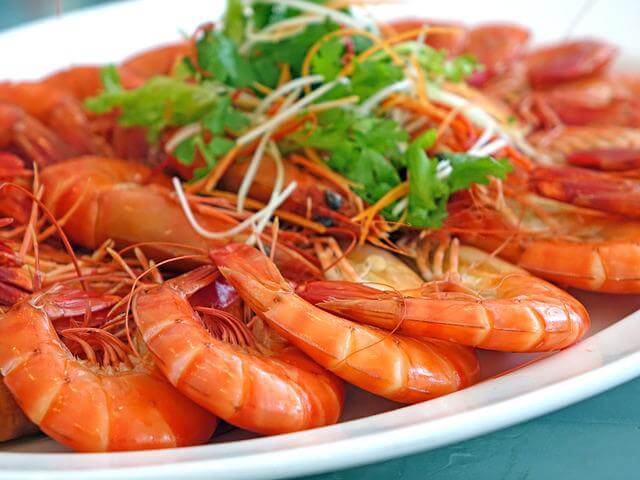
RELATED: Can You Give Bread to Your Cat? Is It Safe?
As a side note, there is no cure for this kind of poisoning. There isn't much you can do but wait it out and hope things return to normal and your vet manages to control the symptoms.
Antibiotics
We buy a large percentage of our shrimp from other countries. Experts estimate that roughly 80 percent of our shrimp is imported since the market simply can't keep up with the demand for shrimp. And although we appreciate this enhanced supply, there is one potential issue with high demand - the market gets flooded with low-quality products.
There are no wild-caught shrimp in the imported shrimp. Shrimp farmers in other countries use antibiotics to "clean" their shrimp of any pathogens before harvesting them. Shrimps are also delicate, and they are highly susceptible to various infections. It is impossible to know how these human antibiotics will affect your cat's health.
Unfortunately, the FDA's resources have been pushed thin recently, so they cannot thoroughly inspect every product that enters the country. This means that you could be giving your cat antibiotic-laced shrimp that was reared in a farm setting.
RELATED: Can Cats Eat Chocolate? Is it Safe?
It's best to use wild-caught shrimp if you absolutely have to share some with your cat. To ensure that any antibiotics in shrimp get neutralized, you have to thoroughly cook them.
How to safely include shrimp in my cat's diet?
The most important thing you have to do is ensure the shrimp flesh is deveined. Remove the hard shell, tail, and head before you begin cooking. Second, it's ideal to offer the cat plain cooked shrimp that doesn't contain any seasoning. Cats may be poisoned by seasoning, and you should keep them exclusively for yourself and your human friends. Finally, don't overfeed your cat on shrimp. Even if your cat adores it, that doesn't mean it should be given as a meal.
World Cat Finder Team

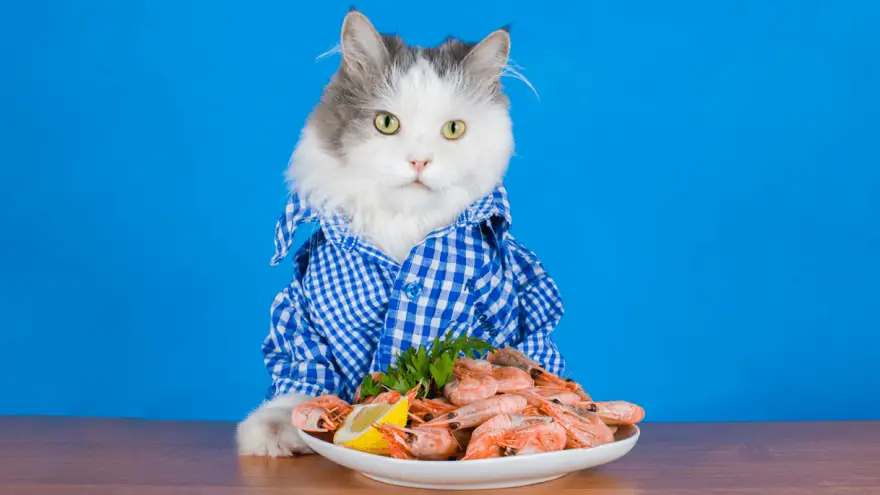

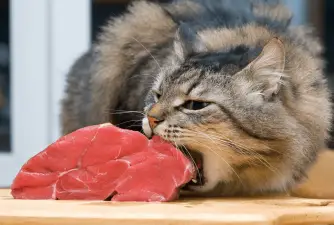
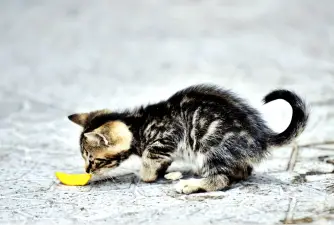


Share